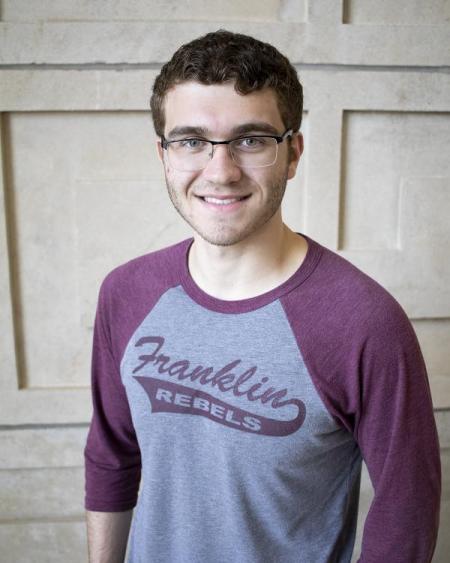
Connecting Communities
by Sam Walsh in Williamson County
It’s a busy day in our small town. There’s a refreshing mid-afternoon breeze that makes working for Mr. Lewis on his farm a little easier. He and everyone else in town don’t own a planting machine, so Mr. Lewis regularly hires the town’s children to sow crops. And I regularly work for him to raise some extra money our family needs for our farm. My optimistic father often buys lottery scratchers in hopes of one day getting lucky and expanding the farm, but we have yet to see that day. Generously, Mr. Lewis pays me six dollars an hour. I stand up to enjoy the wind, and I see my neighbor, Norman Lake, walking back from the nearby town. He is a man that stands out from the rest of our town.
There are around a hundred of us living here; we have farmers, fishermen and Mr. Lake, an aged writer. He moved here from Nashville using all his cash a few years back since our quaint town reminded him of his own beloved childhood village and “would inspire his future writing.” With what little income he makes off his news articles and novels he uses for food and house repairs. He would make a better income if he could meet his deadlines, but he can’t afford the electricity that would allow him to prepare his writings at home.
From some of the conversations I overheard between my father and Mr. Lake, Mr. Lake grew up with electricity in the mid-1900s when electric cooperatives made a point of traveling from rural community to community to teach the townspeople how to use electricity and appliances. Apparently, our house is still powered by an electric cooperative, as are most other homes in our town.
Every day, Mr. Lake walks to that library four miles away to type up his written works and send them to publishers and newspapers. I figured he would eventually realize the hardships he faced and ask others for help to leave town, just as a bankrupt painter had many years back. Yet, Mr. Lake has survived without asking for help; he just keeps on with his profitless lifestyle. There’s a certain appeal to his determination. He abandoned his resources and earnings to feel the nostalgia of childhood, and he continues to write elegant works of rural living just to extend those sentimental emotions.
As sunset approaches, I finished sowing the last row of crops before saying goodbye to Mr. Lewis and heading home. Today clearly shows the beauty of the country sunset. The sky is painted with vibrant streaks of orange and yellows and glazed with misty pink clouds. I can see why Mr. Lake wanted to leave the city, it’d be hard to see its splendor through the miles of skyscrapers.
After I got home, my father called me over to check something. I thought it’d be another electrical bill since he likes to show me how he only pays roughly 75% of the nation’s average cost, but on our kitchen table was a scratcher. My father won $1,000 with three matching spades! It’s far less than the $50,000 jackpot, but it’s nonetheless exhilarating.
“Whatcha think we can do with it,” my father said excitedly, “it ain’t enough for anything big, and we don’t need no more seed. We gon’ have plenty of crop this season.
“Then do we really need it?” I asked him, and then I realized how it could be put to good use. “What about Mr. Lake across the street? He’s been living with zero cash for years now, maybe the $1,000 could pull him out of the hole.”
“How’s a grand gon’ help the ol’ man? Once it’s spent, he’ll be in the same ol’ hole as before.”
“Not if he buys something that’ll make him more money, like electricity,” I reasoned, “He’ll be able to work from home and make money again from his publishers, and since the corporation’s electrical costs are a little lower than nine cents a kilowatt, he could work for months before needing more.”
My father sat silently for a minute before saying, “You’re a smart kid, I think, and you’ve been right ‘bout a lot before, so I hope you’re right about this one too. I ain’t enjoyin’ watching that ol’ man struggle every day. Let’s go cash it in.”
That day was nearly two years ago, and I still cherish the memory. I will never forget his beaming smile and tears of joy. Its effect seemed instant. After the electricity was installed, he pushed out novels faster than ever. Before too long he could afford the internet too, the first in our town provided by our local electric cooperative. To express his gratitude, he wrote a weekly newspaper that gave our town all the recent news he could find. Our local electric cooperative gave our town more than just electricity, they created a budding community.